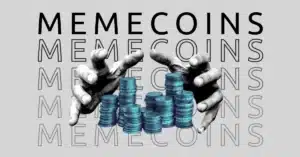Decentralized science (DeSci), explained

Understanding traditional science (TradSci) and its limitations
Traditional science, or TradSci, represents the methodical pursuit of knowledge through theory, experiment, and observation.
Traditional science follows a centralized approach in which major publishers and institutions have disproportionate control over research. This leads to several weaknesses. Innovation often slows down due to competition and lack of funding.
Potential breakthroughs may be hindered, for example, if grants are denied to early-stage initiatives. The long and biased publication process in high-impact journals can hinder the timely exchange of knowledge. A study can take years to publish, hindering the ability of the larger community to expand on those findings.
Additionally, paywalls on published research create barriers to access, particularly for independent researchers and the public. This system can hinder cooperation and ultimately reduce the impact of scientific developments. It undermines the idea that tens of thousands of dollars must serve the public interest to publish a science paper.
Open access pre-publication services such as ArXiv exist, but they do not provide article-level tracking, authentication, or quality control. SciHub provides unauthorized access; Therefore, there is a need for a public, easily accessible science platform. Web3 provides the resources needed to create a system that ensures data integrity and encourages participation.
Decentralized science is an alternative approach to the current scientific system
DeSci, within the Web3 framework, is a paradigm shift in scientific research characterized by four fundamental principles: incentives, transparency, decentralization, and collaboration.
From centralized institutions, where a small number of entities control most of the power, to decentralized networks, where participants share most of the power, is known as decentralized systems. This shift reduces the power of gatekeepers and increases inclusion by democratizing access to resources and decision-making.
DeSci places a strong emphasis on transparency, supporting free and open access to methodology, data and conclusions. DeSci fosters transparency and accountability by encouraging transparency, making scientific research more reproducible and trustworthy.
Collaboration is at the heart of DeSci, which uses decentralized networks to enable cross-border, censorship-resistant collaboration. DeSci breaks down institutional and geographic boundaries and promotes diversity of perspectives, sharing of expertise, and team problem solving.
Decentralized autonomous organizations (DAOs) and tokens to compensate researchers for their efforts are the driving forces behind DeSci's incentives. These awards align with the group's goals of advancing knowledge, innovation and community impact. DeSci encourages participation, innovation and preservation of the scientific method by including financial incentives.
How DeSci works
DeSci uses blockchain for secure data storage, DAOs for decentralized decision-making and tokens to incentivize research contributions and manage intellectual property.
Due to its immutable and decentralized structure, blockchain technology ensures safe and secure data storage. Because blockchain data is distributed among multiple nodes in the network, it is resilient to tampering and single points of failure. An ordered series of linked data blocks, each block in the chain containing the cryptographic hash of the previous block. Adding blocks to the chain ensures the integrity and security of the data because without the acknowledgment of the majority of the network, it is impossible to alter any previous blocks computationally.
DAOs are essential components of DeSci, enabling transparent and decentralized financial allocation and project management. DAOs allow stakeholders to manage resources and make decisions collectively without the need for central intermediaries. They achieve this by using smart contracts on blockchain networks. DAO members can use programmable governance mechanisms to make rules, propose and vote on research plans, and allocate cash to specific projects.
In DeSci, tokens and intellectual property intangible tokens (IP-NFTs) are important to encourage participation and claim ownership of research results. IP-NFTs allow researchers to tokenize their intellectual property (eg, papers, datasets, patents) on the blockchain. Tokens can be used in decentralized research communities to coordinate incentives, compensate researchers for their contributions, and encourage collaboration.
With IP-NFTs, scholars can tokenize their intellectual property, including papers, databases, and patents, and give themselves proprietary rights that can be exchanged or licensed on blockchain platforms. This encourages innovation and data sharing within the DeSci ecosystem.
Advantages of DeSci
DeSci fosters innovation and teamwork, democratizes access to scientific knowledge, and builds a more inclusive and equitable research environment.
First, it promotes inclusion by reducing barriers to entry, allowing scientists from multiple areas and backgrounds to participate and participate in scientific projects. Additionally, by providing open access to data, methods and results, DeSci promotes trust and transparency by promoting replication and peer review.
It also promotes international collaboration by allowing researchers to collaborate in a decentralized, censorship-resistant way that accelerates innovation and problem-solving. DeSci offers innovative incentive systems, including tokens and DAOs, that ensure fair payment for researchers and encourage participation.
IP-NFTs give researchers control over their intellectual property, which can monetize their work and encourage open sharing. Moreover, DeSci removes payment walls and democratizes research data and discoveries, encouraging a wider exchange of knowledge.
In the world of DeSci, trust and verifiable credentials are paramount. Soulbound tokens, as non-transferable tokens of achievement, provide a powerful tool for researchers to demonstrate their knowledge and credibility within the community.
Challenges related to DeSci
DeSci faces challenges in data security, efficient DAO management, blockchain scalability, navigating legal gray areas, and research if it intends to transform itself.
There is a major challenge in ensuring data security and integrity on decentralized networks as bad actors attempt to alter or corrupt research data. In addition, it can be difficult to reach consensus in DAOs, which requires the management of competing interests and preferences in an efficient governance structure.
Additionally, scalability is still an issue as the high transaction volume and data volume of large research projects can be too much for blockchain networks to manage. Widespread adoption has been further hampered by legal issues and regulatory uncertainties related to data ownership and intellectual property rights.
It is also important to overcome the digital divide and ensure equitable access to DeSci tools and resources for researchers from all geographic and socioeconomic backgrounds. Overcoming these obstacles requires creative thinking, teamwork, and constant adaptation of the decentralized technology landscape.












